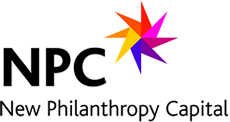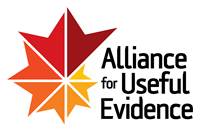Is social impact being analysed ethically?
Is social impact being analysed ethically?
by Mary Rose Cook, Uscreates
‘How are you defining ethics?’ I was asked this at a recent event, where I was presenting learning on the ethical challenges of achieving social impact within our work at Uscreates. It was an obvious question and yet one that I still hadn’t fully prepared for. When the topic is so subjective, it is difficult to give a definitive answer. But for me, the ethics of social impact boils down to best practice: ensuring all involved in and affected by a project have been considered, communicated with and collaborated with.
When it comes to measuring social impact, the way in which the impact has been achieved is just as important as what has been achieved. Currently, social impact measurement tends to focus on calculating the people reached, the behaviours changed and the ROI, so it is easy to overlook some important questions:
- Has the desired impact of the project been achieved without causing negative impact elsewhere?
- Who is ultimately responsible for the positive and/or negative impact of the work, and who will be accountable for its effects in the future?
- What were the advantages and disadvantages of intervening in one area to create social impact, rather than another?
- Have expectations been managed – were those involved able to anticipate the outcomes?
These questions are crucial in the analysis of social impact and must be considered. If they are not, a narrow focus on achieving the impact could lead to the use of inappropriate methods.
For example, I was recently sent a project brief to increase GP registrations in a small city. There was a target number of registrations to achieve, and a time frame to do so. One way to hit this number would be to use the budget available to take a team to the areas where registration was low and incentivise people to join (through vouchers or cash). It would have hit the targets, and in terms of measurement, would look very positive. Figures could have been attributed to it, such as cost savings from the possible reduction in A&E attendances.
This approach may have quickly provided some measurable results, but the ethics would be questionable. Would those involved be more likely to use the GP as a result, and therefore have improved health and use A&E less? Would they understand the reasoning behind the work, or would further resources need to be spent to raise awareness of health services available? Would they use the vouchers/cash on scratch cards, junk food, alcohol or cigarettes? What would the implications be if they did?
I am currently exploring the role of ethics in achieving social impact. My investigation has so far led me to look at the ethics of collaborative approaches to achieve social impact; the ethical stance of foundations to achieve social impact on behalf of corporates; and the dialogue CSR opens between business and society. Ethical social impact analysis is the next area I will explore, and I would like to hear your ideas.
How do you define ethical practice in social impact? What are some of the issues you have faced? And what are the key barriers and motivators of ethical conduct?
Mary is the co-founder and managing director of Uscreates. You can contact her at Mary(a)uscreates.com or on twitter @CookMary






+44 (0) 20 3111 0735
[email protected]
Follow us on Twitter
Join us on LinkedIn
Join us on Facebook
Our photos on Flickr
Subscribe to our Feed